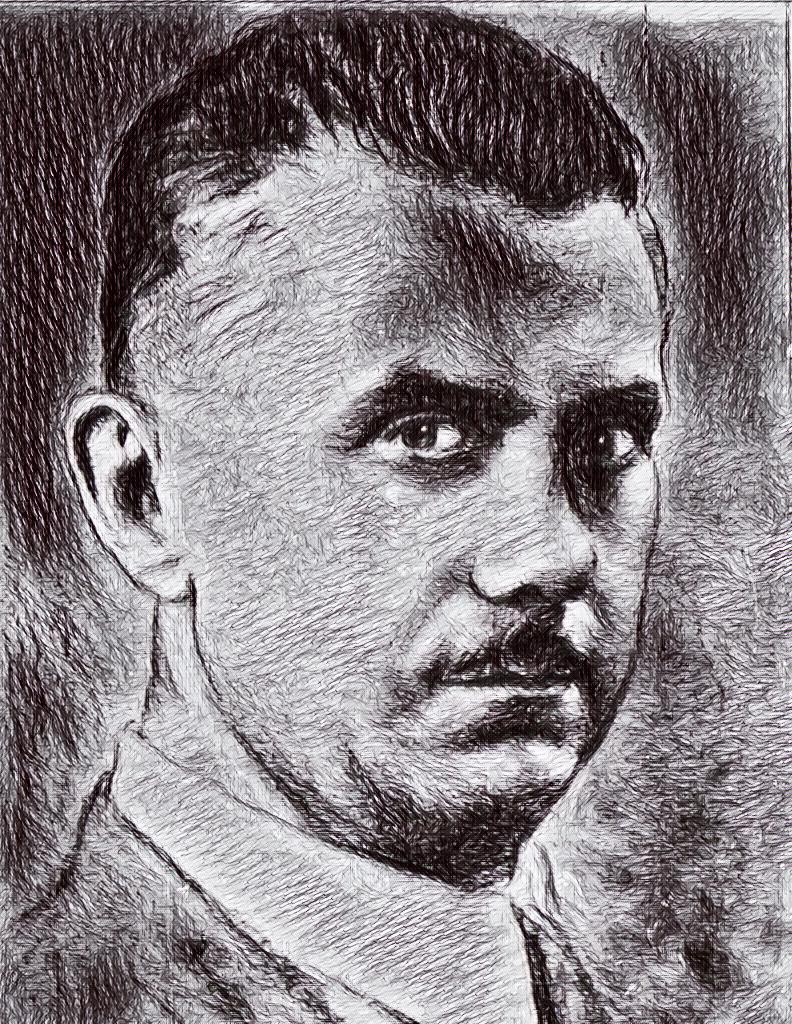(Pontelagoscuro (FE) 1881 – Roma 1944)
Appena terminate le elementari Bruno Buozzi cominciò a lavorare come meccanico nel paese natale; si trasferì poi a Milano dove lavorò come operaio specializzato alle Officine Marelli e alla Bianchi.
Nel 1905 aderì al partito socialista e al sindacato degli operai metallurgici. Apprezzato dirigente divenne segretario nazionale nel 1911, carica che mantenne fino al 1926.
Sostenitore della specificità dell’azione sindacale, contrario all’uso della violenza, convinto che la democrazia si dovesse realizzare a partire dai luoghi di lavoro. Sostenne l’organizzazione del sindacato “per industria”, che superava la vecchia organizzazione “per mestiere”, che fu definitivamente approvata nel 1921, adottando il principio di un unico sindacato per operai, impiegati e tecnici.
Sotto la sua guida fu stipulato nel 1919 il primo contratto nazionale che stabiliva la giornata di otto ore.
Nel 1925 venne eletto segretario generale della CGL. Fu deputato socialista dal 1920 al 1926 quando, con l’instaurazione del fascismo e la fine della libertà sindacale, fu costretto all’esilio in Francia. Arrestato a Parigi nel 1941 e trasferito in Italia, fu liberato con la fine del fascismo nel luglio 1943. A seguito dell’occupazione tedesca continuò ad agire in clandestinità avviando la ricostruzione del sindacato dopo la fase corporativa. Fu protagonista con Grandi e Di Vittorio della costruzione della CGIL unitaria con la stesura del “Patto di Roma” a giugno del 1944.
Non poté materialmente firmarlo perché fu arrestato, imprigionato e poi ucciso dai tedeschi in fuga.
As soon as he finished elementary school, Bruno Buozzi began working as a mechanic in his home town; then he moved to Milan where he worked as a journeyman at the Officine Marelli and at Bianchi.
In 1905 he joined the Socialist Party and the trade union of metal workers. Appreciated leader, he became national secretary in 1911, a position he held until 1926.
Committed to specificity of the trade union action, opposing the use of violence, and convinced that democracy should start from workplaces. About the union organization he supported the shift from the former organization “by profession” to the “industry” one, which was finally approved in 1921, adopting the principle of a single trade union for workers, employees and technicians.
Under his leadership was signed in 1919 the first national contract establishing the eight-hour day.
In 1925 he was elected general secretary of the CGL. He was a socialist deputy from 1920 to 1926 when, with the establishment of fascism and the end of freedom of association, was forced into exile in France. Arrested in Paris in 1941 and moved to Italy, he was freed at the end of Fascism in July 1943. Because of the German occupation he continued to operate underground initiating the reconstruction of the union after the fascist corporate phase. He was the protagonist with Grandi and Di Vittorio of the construction of the unitary CGIL with the drafting of the “Pact of Rome” in June of 1944.
He could not physically sign it because arrested, imprisoned and then killed by the fleeing Germans

